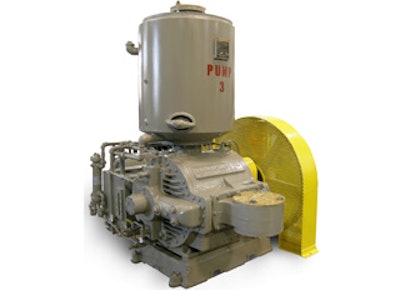
The most important part of a hydraulic system is keeping it clean. Any extreme pressure system is vulnerable to dirt, particles, and other matter that could contaminate the close tolerances necessary for any hydraulic system. All pipes, fittings, and other components must be extremely clean before use.
Maintenance Tip: Regularly replace filters and, at a minimum, replace the hydraulic fluid annually. When replacing the fluid, completely drain reservoirs and clean out all contaminants.
When connecting to a hydraulic system, use the tubing or pipe that is capable of handling heavy pressures and loads required by the hydraulic system. Pipes should have a minimum number of bends and fittings, as well as be securely fastened and clean. Iron pipes are not recommended because they have particles that will flake off and contaminate a system.
Maintenance Tip: Consult with your hydraulic service provider for the proper tubing or pipe. Share a schematic of your hydraulic system and request recommendations for maximizing operating efficiency.
Hydraulic Piston Pumps
When it comes to hydraulic units, you will find that piston pumps, while more expensive than gear and vane pumps, provide longer life operating at higher pressure, with difficult fluids and longer continuous duty cycles. There are several advantages to using a piston pump for operations, particularly in the automotive or aerospace industries. Because of the balanced configuration of the pump, there is virtually no vibration. The piston pump is perfect for several different materials, including those with particularly small particles. In addition, the design itself is very hardy and promotes a long life.
Maintenance Tip: If you are experiencing pump failures after a short period in service, perform failure analysis to determine the root cause of failure. Oftentimes, what was thought to be contamination could be improper assembly at the manufacturing plant. This can save money by claiming a warranty with the failure data you have generated to back up your claim.
Hydraulic Motors
For most applications, a relatively small hydraulic motor can be placed with ease and connected to a pump located remotely within the system through high-pressure flexible hoses. Initially, axial-piston motors cost more than vane or gear motors of comparable horsepower and, like radial piston motors, have a long operating life. Because of this, their higher initial cost may not truly reflect the expected overall costs during the life of the equipment.
Maintenance Tips: The majority of motor problems fall into these categories:
- Improper fluid – Must have clean fluid, in adequate supply, and of the proper quality and viscosity.
- Improper operation – Exceeding a motor’s operating limits promotes motor failure. Every motor has design limitations on pressure, speed, torque, displacement, load, and temperature.
Tips for selecting a qualified repair service for your hydraulic components
While researching repair companies, always ask:
- Do you test hydraulic repairs both statically and dynamically?
- Do you provide full test reports and testing certificates?
- Do you offer solutions for hydraulic parts that are obsolete or beyond repair?
Big Bonus: If the repair company has an in-house machine shop and an engineering services department, they may be able to reduce costs and create a fast turnaround by manufacturing replacements that meet or exceed OEM specifications.



















